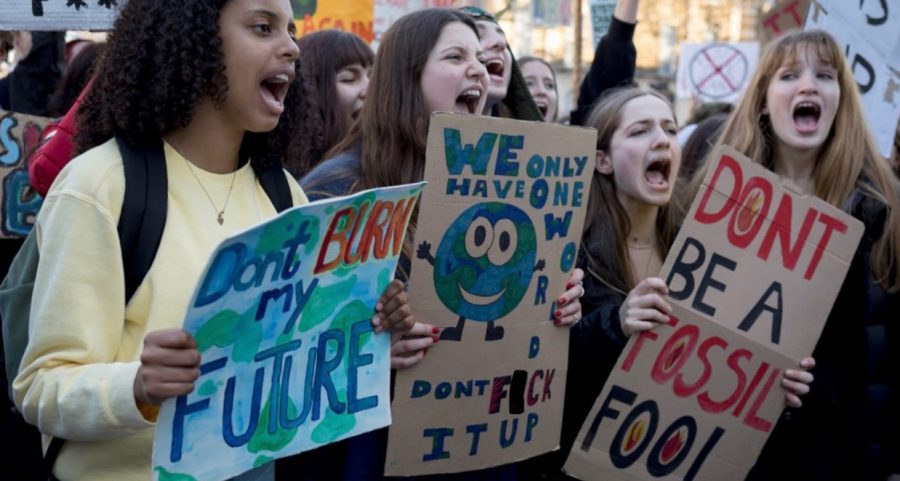Our house is on fire
“I don’t want your hope. I don’t want you to be hopeful. I want you to panic… and act as if the house was on fire… because it is,” said 16-year-old environmental activist Greta Thunberg.
The effects of climate change continue to be an ongoing yet inconspicuous conversation throughout not only the country, but the world. A study from Yale University shows Americans who accept climate change outnumber those who don’t 5 to 1. If Americans know the issue, why is nothing being done? Why is America not in a complete and utter panic?
When I was in elementary school, I remember learning about the Cold War. I remember learning about schools taking part in nuclear bomb drills, like “duck and cover”. This concept terrified me, the idea that any moment your world and everything and everyone in it was just completely gone. I asked my grandmother who lived through it what it was like. I assumed she would tell me that people were petrified. They were scared to leave their homes, they constantly talked about it in schools, on the news, and even at the dinner table. I imagined it consumed everyday lives, the constant threat of being eliminated.
What she did say scared me even more. She told me that they didn’t talk about it, they made jokes, and it only came up during the drills. She told me people were more concerned with the issues of their everyday lives. I think of my grandmother’s story often when I look at our country’s reaction to climate change. History always does have a funny way of repeating itself. But this time, there’s no mystery bomb in the sky, we are no longer sitting ducks, but we have real viable options to save our world, options that continue to be brushed off.
Just eight weeks ago, the senate voted down the Green New Deal. The 14-page deal is not a list of ways to magically fix climate change as many believe it to be, but it is a non-binding resolution that sets goals for our country. These goals include meeting 100 percent of the power demand through renewable and zero emission energy sources, creating millions of high wage jobs, and getting net zero greenhouse gas emissions.
It is argued that because there are no specific details on how to achieve these goals, the Green New Deal is useless, but I don’t see this as a negative. This deal is meant to be something to open dialogue and as a way for the U.S government to formally recognize climate change.
“The first step is to find the problem and find the scope of the solution,” said New York Congresswoman Alexandria Ocasio Cortez. “We are here to say that small incremental policy solutions are not enough.”
And she’s right. Small policy changes do nothing at this point. A landmark report from the U.N. states that if greenhouse gas emissions continue at the current rate, we could see worsening food shortages and wildfires as soon as 2040. It explains that one million species are at risk of extinction at the hands of climate change.
Battling climate change cannot be a moment but a movement. While there are 100 companies responsible for 71 percent of all global emissions, according to the Carbon Majors Report, it is up to the world’s population to make up for that 29 percent we can control.
New proposals are being made every day on ways to combat climate change, such as the idea of Carbon tax. Many are against this because they see the word “tax” in a very negative light. This is simply a fee on the carbon that not only citizens use, but corporations. However, the way this tax is being proposed is to pool all the money and send it back to taxpayers as rebates. According to The Guardian, these rebates are anticipated to exceed the increased costs for about 70 percent of Canadian households. Thus, lower income households would benefit the most.
The question is: does it work? And the answer is overwhelmingly yes. According to The New York Times, more than 40 governments have initiated some sort of tax on carbon. As a result, carbon emissions have fallen to their lowest levels since 1860 in the UK, according to the Carbon Brief.
Remember the “three R’s” in elementary school? Reduce, reuse, recycle? Well, those still apply. Anyway you can stop contributing to the consumption cycle and lower your personal carbon emissions is progress. The best way you can help end climate change is through being well informed. Call your local representatives, tell friends and family what is at stake. Most importantly, call climate change what it is: a climate crisis. Do not be calm about this crisis. Panic, because our house is on fire.

